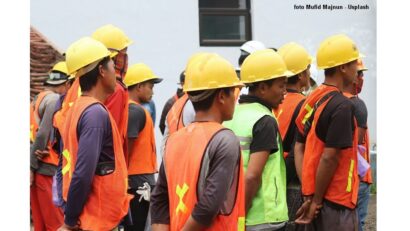The Second Gender
Among all European countries, Romania has the lowest female employment rate

Luiza Moldovan, 11.09.2024, 12:01
Among all European countries, Romania has the lowest female employment rate. 45.4% of Romanian women have a job, compared to men, of whom 62.7% are employed. For example, the Netherlands has a female employment rate of 68.1%, Estonia – 67%, Sweden – 65.9%, Denmark – 65%, according to Eurostat data from 2022.
What would be the cause of this difference? According to the European Institute for Gender Equality, the cause lies in the traditional division of tasks within the household. Or, as a Romanian would say, the woman runs the house. We talked about this topic with Octavian Moldovan, university lecturer at the Department of Administration and Public Management within the Faculty of Political, Administrative and Communication Sciences of the Babeș Bolyai University and also an expert in human resources and gender discrimination. Here is how Octavian Moldovan explains this huge social discrepancy, applied directly to the Romanian model:
“I think there are several reasons why, in Romania, the female employment rate is much lower than that of men, the difference being of about 20%. First and foremost, I would mention what is called domestic work. The fact that women are much more involved in household activities than men are. Whether we are referring here to household chores (cooking, washing clothes, washing dishes, cleaning) or taking care of the elderly in the household or children, as a rule, women tend to be much more involved in such activities. Related to what is called domestic work, we can also connect the lack of care alternatives for children, elderly people, the fact that, very often, you have no other opportunity than to take care yourself of such vulnerable people. We could mention here a transfer of responsibility, from the state to private individuals in the family for the care of the elderly and, most of the time, to women. I also think there are labor market issues. I would mention here the location of jobs or their geographical positioning. Jobs tend to be found in large cities, medium-sized towns, small towns and less in rural areas. This means that if you want a good paying job or if you want a job in general, most of the time you need to be in a big, medium or small city or be able to commute to one. Or, again, women being busy with domestic work, can’t really commute. Also related to the labor market, we can mention the failure or lack of public reintegration policies on the labor market after maternity leave, after child-rearing leave or after other situations in which jobs are lost within a family. Here again, women tend to be more affected than men. Another element that can lead to this difference between women and men is related to flexible jobs. There are very few situations in Romania where part-time work or work from home is accepted, is well regarded, and these are types of work that would be more favorable for women than for men”.
We learn discrimination from an early age. We passively accept patterns of behavior and carry them forward into our adult years. Octavian Moldovan explains:
“Women’s access to the labor market is influenced by various social and cultural norms which, all told, lead up to multiple forms of discrimination on the labor market. And at this point, we can speak about what we call horizontal discrimination, meaning that certain fields, certain types of activities are dominated by a certain gender, for instance, in Education, Healthcare, Social Assistance, at grassroots level of such organizations, most of the employees are women. On the other hand, in Police, Army, certain areas in the private sector most of the employees are of the masculine gender. We can also speak about what is known as vertical discrimination, about the fact that access to management or decision-making positions is restricted or limited for women, in most of the fields, including areas where women account for most of the employees at grassroots level.”
It all starts in childhood, from the game and role categories, our interlocutor has added:
Track 3: „Both the vertical and the horizontal discrimination are related to the game categories, to the types of roles we ascribe to boys and girls from the very early years in their lives. Men play with toy cars, there are policemen, they need to be assertive, they need to impose themselves, whereas girls need to be more tender, more delicate, more conciliatory, they play with dolls, they look after the little babies, children, they cook or get involved, one way or another, in the play, in all that is related to looking after the others. And this is the root of what I’ve said earlier about the household work and about men’s and women’s differentiated involvement in the household work and, further on, in their careers. We expect men to look after their careers, whereas women should be more dedicated to the household, to taking care of the others. “
We have laws and public policies meant to bridge the gender inequality gap. However, they are significantly inefficient. Or at least that is what Octavian Moldovan thinks.
“At a first glance, in Romania, we have a very good situation with respect to the public policies and legislative measures meant to bridge the gender inequality gap on the labor market. We have, first and foremost, organizations carrying dedicated work on curbing the phenomenon, we have a Family, Youth and Equal Opportunities Minister, as well as a National Agency for Equal Opportunity between men and women. Also, we have the European, national legislation on gender equality or equal opportunities legislation on the labor market, as well as indirect references, both in the Labor Code and the Constitution or other laws, pertaining to women’s and men’s equal opportunities on the labor market. Notwithstanding, the efficiency of the legislation, the efficiency of the dedicated institution is somewhat debatable. If we take into account the pay-gap between women and men, we have a satisfactory situation in Romania. We do not have a significant pay-gap between women and men. However, on the other hand, there is a different level of occupancy on the labor market, of women as against men, there also is that kind of women’s limited access to leadership positions. Why do we have such discrepancies? We do we still face such problems pertaining to the equal access on the labor market? Here we can also take into account the fact that the dedicated legislation is implemented, just like other categories of legislation, in a defective manner. We have the required laws yet we do not have just as yet institutions that are strong enough for us to implement those laws correctly. Also, gender-based discrimination on the labor market continues to exist precisely because, oftentimes, it is an informal phenomenon, a phenomenon that cannot be detected directly. It is something that happens behind closed doors, behind organizational norms and rules.” (MI/EN)






























